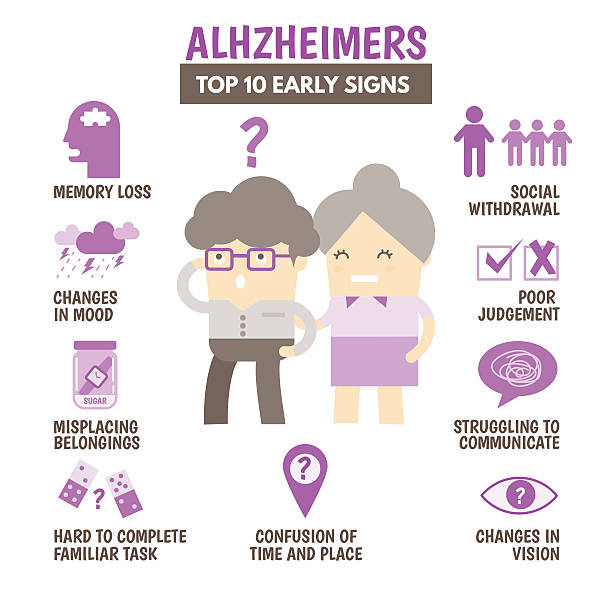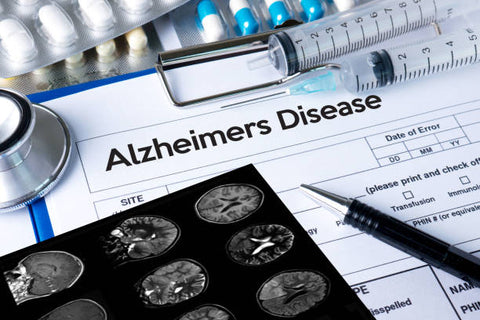Introduction
Alzheimer's disease is a progressive and degenerative brain disorder that affects memory, thinking, and behavior. It is the most common form of dementia, a term used to describe a decline in cognitive abilities that interfere with daily life. In this article, we will explore the symptoms, causes, and treatment options for Alzheimer's disease.

Symptoms of Alzheimer's Disease

The symptoms of Alzheimer's disease can vary from person to person, but the most common symptoms include:
-
Memory loss: Difficulty remembering new information or previously learned information
-
Challenges with problem solving: Difficulty performing simple tasks or following a plan
-
Confusion with time and place: Difficulty orienting themselves to time, place, or events
-
Impaired judgment: Poor judgement or decision making skills
-
Difficulty completing familiar tasks: Trouble performing tasks they have performed many times before
-
Changes in mood and behavior: Mood swings, depression, anxiety, or paranoia
-
Communication difficulties: Difficulty finding words, speaking, or writing
-
Misplacing things: Forgetting where they put things and not being able to retrace their steps to find them
Causes of Alzheimer's Disease
The exact cause of Alzheimer's disease is not known, but there are several factors that are believed to play a role, including:
-
Age: The risk of developing Alzheimer's disease increases as you get older.
-
Genetics: There is a genetic component to Alzheimer's disease, with certain genetic mutations increasing the risk of developing the disease.
-
Lifestyle: A healthy lifestyle, including regular exercise, a balanced diet, and cognitive stimulation, may help reduce the risk of developing Alzheimer's disease.
-
Head injury: A history of head injury, especially one that results in a loss of consciousness, can increase the risk of developing Alzheimer's disease.
Diagnosis of Alzheimer's Disease
Diagnosing Alzheimer's disease can be challenging, as it often involves ruling out other conditions that cause similar symptoms. The following steps are typically taken to diagnose Alzheimer's disease:
-
Medical history and physical exam: A doctor will take a comprehensive medical history and perform a physical exam to look for underlying causes of the symptoms.
-
Cognitive and neuropsychological testing: A series of tests that evaluate memory, problem solving, and other cognitive skills are often performed to assess the degree of cognitive decline.
-
Brain scans: Imaging tests such as an MRI or PET scan can help identify the presence of Alzheimer's disease by showing changes in the brain.
Treatment of Alzheimer's Disease
Unfortunately, there is no cure for Alzheimer's disease, but there are several treatments that can help manage the symptoms and slow the progression of the disease:
-
Medications: There are several medications available that can help improve memory and cognitive function and reduce the symptoms of Alzheimer's disease.
-
Therapy: Therapy, such as occupational therapy or speech therapy, can help improve communication and daily functioning.
-
Caregiver support: Family and friends can play an important role in providing support and care to individuals with Alzheimer's disease.
-
Lifestyle changes: A healthy lifestyle, including regular exercise, a balanced diet, and cognitive stimulation, may help slow the progression of Alzheimer's disease.
Conclusion
Alzheimer's disease is a devastating disease that affects millions of people around the world. Understanding the symptoms, causes, and treatment options can help individuals and families better prepare for the challenges of caring for a loved one with Alzheimer's disease. With proper care and support, individuals with Alzheimer's disease can maintain their quality of life for as long as possible











